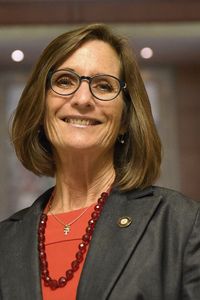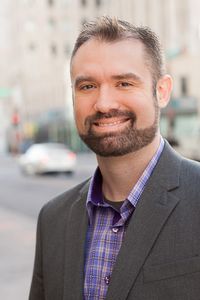Patrick Little
Patrick Little burst onto the political scene in 2018 with an unsuccessful but attention-grabbing Senate campaign in California. Though his extreme rhetoric led to his rejection by the Republican Party, Little continued seeking national office. His story illuminates the murky corners of fringe politics in America today.
Background on Patrick Little
Patrick Little first drew widespread attention during his 2018 campaign for US Senate, running in the California primary as a Republican. Prior to this, Little had a relatively undistinguished background. He grew up in Maine, served briefly in the Army, and claims to have attained a physics degree. In 2016, he articulated his antisemitic, racist, and white nationalist views in a private chat forum. This formed the basis for his later political campaigns.
2018 Senate Campaign
In January 2018, Little registered to run in the California US Senate primary on the Republican ticket. His campaign rhetoric focused heavily on antisemitic conspiracy theories, including claiming Jews caused the Iraq War and control the media and banking system. He also blamed immigration on Jews to advance the “white genocide” of Europeans. Little vowed if elected to strip Israeli dual citizens of security clearances and unify with Russia against “Jewish influence.”
Campaign Platform and Controversy
Little’s extreme views sparked immediate controversy. The California Republican Party condemned his rhetoric and barred him from their state convention. However, Little was not removed from the primary ballot due to free speech protections. Mainstream conservatives disavowed him, but he developed a small fringe following through social media and earned donations from white supremacist groups. His campaign photographs showed Little posing with antisemitic and racist memes and slogans.
Primary Results
In California’s top-two open primary on June 5, 2018, Little gained just over 1% of the vote. He finished 14th in a field of over 30 Senate candidates. The two highest vote-getters, Dianne Feinstein (D) and Kevin de Leon (D), advanced to the general election. Little’s poor performance demonstrated that his fringe agenda had little traction among most voters.
2020 Presidential Campaign
After his failed Senate bid, Little turned his sights to the presidency. He filed to run in the 2020 Republican primary, again hoping to take advantage of California’s open primary system. However, the state Republican party had learned from 2018 and was prepared to thwart his candidacy early.
Republican Convention
On August 24, 2020, the California Republican Party held a convention vote on whether to endorse Little’s nomination. The vote failed decisively, forcing Little to run as a write-in for the remainder of the primary. Despite more campaign stunts, including racist billboards, mainstream rejection kept Little off the general election ballot in November.
General Election
Little’s write-in campaign flopped in the 2020 primary. He failed to register even a minimal number of votes compared to other Republican contenders. Donald Trump went on to earn the Republican nomination before losing California by over 5 million votes to Joe Biden in the general election. Patrick Little’s hopes for an electoral breakthrough had failed again.
Aftermath and Analysis
Though he never came close to winning office, Patrick Little’s two campaigns garnered attention from both media and extremist circles. His experience provides insight into the realms of fringe politics and political extremism in contemporary America.
Response from Republican Party
Little’s rhetoric and agenda faced strident opposition from mainstream Republicans. By preemptively blocking his participation at their 2020 convention, the party took firmer steps to distance itself from extremists within its ranks. Political analysts saw this as a response to white nationalist violence in Charlottesville and the growth of the alt-right under Trump.
Little’s Views and Rhetoric
Experts note that Little’s core beliefs derive from old antisemitic propaganda and conspiracy theories. However, he updated them by affiliating Jews with progressive ideologies like immigration, feminism, and multiculturalism. Though a fringe figure, his attempts at modernizing and popularizing bigotry sound alarms for watchdog groups. They argue the spread of such noxious rhetorical strategies must be staunchly opposed.
Antisemitism Accusations
Little explicitly promoted antisemitic views during his campaigns, leading to widespread condemnation from organizations like the Anti-Defamation League. In his rhetoric, Little portrays Jews as hostile foreign agents controlling America through media, finance, and progressive policies meant to undermine the white European ethnic population.
White Nationalism Connections
Beyond antisemitism, Little’s embrace of racist, anti-immigrant positions placed him firmly in the white nationalist camp according to analysts. His talk of policies meant to benefit white European ethnic interests and prevent a “white genocide” betrayed ideological sympathies with violent neo-Nazi fringe groups.
Conclusion
The marginal but troubling political candidacies of Patrick Little provide insights into the spread of extremism and fringe politics in the 21st century digital landscape. It illustrates how outdated bigotry can be repackaged for potential mass appeal. Though America’s electoral system contained Little’s explicit extremism, his story shows we must remain vigilant against those who seek to challenge democratic values.
Legacy and Impact
Patrick Little made national headlines but did not leave much of a lasting mark beyond serving as an example of fringe extremism. His provocative campaigns pointed to concerning trends but failed to gain traction even among California’s right-wing populists. In the end, the Republican Party and democratic institutions proved unreceptive.
What This Reveals About Fringe Politics
Experts say Little effectively honed his messaging for online radicalization pathways – blending old bigotries with modern identity-based fears and economic uncertainty. This case shows that promoting moderate voices is key to preventing extremists from exploiting disillusionment and acquiring followings. It also demonstrates the firewalls within America’s democratic system against figures like Little achieving actual power.
FAQs
When did Patrick Little first gain notoriety?
Little first drew widespread attention in 2018 when he ran an antisemitic Senate campaign in California as a Republican.
How did the Republican Party respond to Little’s campaigns?
Mainstream Republicans strongly condemned Little’s extremist positions and took steps to block his participation in their 2020 convention.
What core beliefs did Patrick Little espouse?
Little promoted antisemitic conspiracy theories and blamed Jews for progressive policies like immigration and feminism that he claimed were meant to undermine white European Americans.
What congressional seats did Little run for?
Little ran unsuccessfully as a Republican in the 2018 California US Senate primary and the 2020 California Republican presidential primary.
Did Patrick Little’s political campaigns gain much support?
No – Little finished poorly in both the 2018 and 2020 primaries, demonstrating little voter backing for his fringe extremist agenda.








